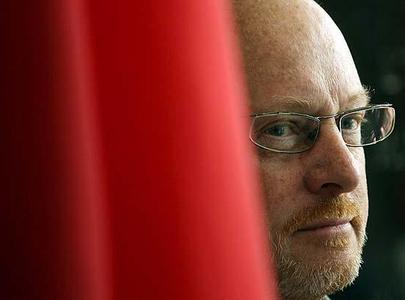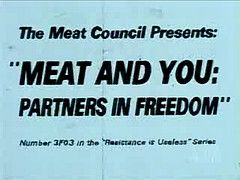The phone rang about 5 a.m. New Zealand time.
The reporter started in about how she had some document, and a guy got fired and would I review it.
 I said, e-mail it, I don’t want to wake my wife, bye.
I said, e-mail it, I don’t want to wake my wife, bye.
Last week, it was reported that an employee with the Canadian Food Inspection Agency was fired after sharing a document that supposedly outlines changes to food inspection and labeling in Canada.
This reporter had an exclusive copy of the document and was seeking so-called expert opinion on its contents.
This is what I e-mailed the reporter (I rarely use capitals or proper grammar in e-mail messages)
I’ve reviewed the document; not sure what the big deal is
government will always being looking to save money, as they should; any proposed change would have to be measured against the potential impact to public health
the underlying principle is: Industry has a responsibility to produce safe food — from farm to fork. Government is there to verify and enforce.
there are specifics to consider with each summary point — for example, would eliminating funding for BSE testing encourage less testing?
but based on these summaries, it’s difficult to say much; and as the (Ottawa) Citizen story says, there’s no surprises here; the agency has been moving in this direction for years
In a subsequent message, I said,
sorry i couldn’t have added more, but the real issue seems to be the termination of this person’s appointment
CFIA does lots of insufficient food safety things, but they aren’t covered in that document
The story that appeared Saturday was typically Canadian – long on speculation, short on substance.
One source, described as “a leading Canadian academic specializing in food risk management” spoke only on the condition of anonymity. What’s the point of having tenure if academics won’t go on the public record? Maybe the unknown academic was embarrassed by his or her comments.
"Reducing food safety controls at this time could be disastrous if there is an outbreak of a new food-borne disease.”
The document contained summary points about shuffling responsibilities – it said nothing about reducing food safety controls. For those who think government is in control when it comes to food safety, spend some time in the food safety world, not just when it’s fashionable.
After paragraphs of baseless speculation, my e-mail message was turned into a quote:
Douglas Powell, scientific director of the International Food Safety Network at Kansas State University, said, "Industry has a responsibility to produce safe food, from farm to fork. Government is there to verify and enforce."
But the best part is what isn’t in the story, A reporter from a national television news outlet called Ben for comment, and subsequently told Ben they had killed the story: not enough substance.
.jpg)


.jpeg) prevention and allowing industry to reach the objectives without excessive regulatory direction. ?
prevention and allowing industry to reach the objectives without excessive regulatory direction. ? also served as the CFIA’s executive vice-president in Ottawa since 2007, was named to the additional post Tuesday by Prime Minister Stephen Harper.
also served as the CFIA’s executive vice-president in Ottawa since 2007, was named to the additional post Tuesday by Prime Minister Stephen Harper. “There’s been a lot of hard questions asked … in terms of how we can get information to the public in as timely a way as possible. I accept the criticism that there is a need for us to reflect and to do a much better job of informing (Canadians)."?
“There’s been a lot of hard questions asked … in terms of how we can get information to the public in as timely a way as possible. I accept the criticism that there is a need for us to reflect and to do a much better job of informing (Canadians)."?.jpg) "The judges were sick with awe at the intestinal fortitude the Canadian Food Inspection Agency gatekeepers have shown," said CAJ President Mary Agnes Welch. "It was clear that the CFIA’s guard dogs found something they can really sink their teeth into."
"The judges were sick with awe at the intestinal fortitude the Canadian Food Inspection Agency gatekeepers have shown," said CAJ President Mary Agnes Welch. "It was clear that the CFIA’s guard dogs found something they can really sink their teeth into."(1).jpg)
(1).jpg) Back to the issue. I’ve always thought it’s easier to market safe food and never had much time for the
Back to the issue. I’ve always thought it’s easier to market safe food and never had much time for the .jpg) “I did hear awkward remarks about your organisation from several microbiologists I know. Your comments in CB confirmed what I heard. I heard other comments you made recently on the listeria outbreak, appalling, very poor comments. Please refrain making further comments, at least publicly. You are hurting our profession.”
“I did hear awkward remarks about your organisation from several microbiologists I know. Your comments in CB confirmed what I heard. I heard other comments you made recently on the listeria outbreak, appalling, very poor comments. Please refrain making further comments, at least publicly. You are hurting our profession.”.jpg) Oh Brain Evans, where were you in August?
Oh Brain Evans, where were you in August?.jpg) Amen.
Amen..jpg)
 Amidst some stories about new listeria testing protocols for Canada, the
Amidst some stories about new listeria testing protocols for Canada, the.jpg)
.gif) That’s what I wrote in Dec. 2006 in a piece called,
That’s what I wrote in Dec. 2006 in a piece called, (1).jpg) The 2005 Canadian Food Inspection Agency (CFIA) review predicts concerns that have emerged from the current Maple Leaf listeria outbreak that has claimed 18 lives.
The 2005 Canadian Food Inspection Agency (CFIA) review predicts concerns that have emerged from the current Maple Leaf listeria outbreak that has claimed 18 lives. I said, e-mail it, I don’t want to wake my wife, bye.
I said, e-mail it, I don’t want to wake my wife, bye..jpg)